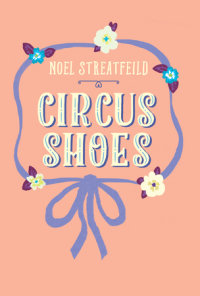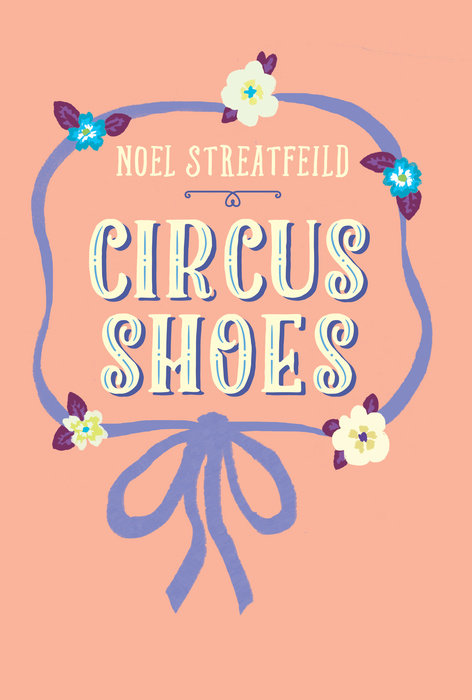Peter and Santa were orphans. Their father and mother were killed in a railway accident when they were babies, so they came and lived with their aunt. The aunt’s name was Rebecca Possit, but of course they called her Aunt Rebecca. Before the children were born Aunt Rebecca had been lady’s maid to a duchess. This was a good thing because when the duchess died she left her an annuity, and as Aunt Rebecca had no other money and neither had the children, it was important. In other ways it was not so good. Being lady’s maid to a duchess had made Aunt Rebecca suppose that only dukes and duchesses, and perhaps kings and queens, could be right. She never did or said anything without first thinking how “Her Grace” would have said or done it. As the duchess’s sayings and doings had been rather a bore, Aunt Rebecca’s were too.
What Aunt Rebecca said and did would not have mattered much to Peter and Santa because, of course, they were interested in their own…
Peter and Santa were orphans. Their father and mother were killed in a railway accident when they were babies, so they came and lived with their aunt. The aunt’s name was Rebecca Possit, but of course they called her Aunt Rebecca. Before the children were born Aunt Rebecca had been lady’s maid to a duchess. This was a good thing because when the duchess died she left her an annuity, and as Aunt Rebecca had no other money and neither had the children, it was important. In other ways it was not so good. Being lady’s maid to a duchess had made Aunt Rebecca suppose that only dukes and duchesses, and perhaps kings and queens, could be right. She never did or said anything without first thinking how “Her Grace” would have said or done it. As the duchess’s sayings and doings had been rather a bore, Aunt Rebecca’s were too.
What Aunt Rebecca said and did would not have mattered much to Peter and Santa because, of course, they were interested in their own things, but most unluckily the duchess had a great many grandchildren who had often been to stay at Plyst (pronounced “Pleat”), where the duchess had spent most of her time. How Peter and Santa suffered from the duchess’s grandchildren!
“I don’t believe anything nice ever happened to that awful Lady Marigold or Lady Moira or those horrible Manliston children,” Santa grumbled.
Peter sniffed.
“It’s all very well for you to make a fuss, but you don’t have that dreadful Lord Bronedin pushed down your throat all day.”
Santa had fair hair which hung down to her waist. It curled a little bit, but not enough, so it had to be what Aunt Rebecca called “helped.” Santa hated her hair. She wanted it cut short, or at least put in braids, but instead she was made to wear it loose, because the duchess had said: “A woman’s glory is her hair.” She had also said: “How hair looks depends on the brushing it gets. Six hundred strokes a night. That’s my rule.” Which from Santa’s point of view was a very annoying statement.
Though he did not realize it, the worst thing Lord Bronedin did to Peter was to set the pattern for his education. Lord Bronedin went to a preparatory school and was on the list for Eton. Aunt Rebecca had never seen either, but she knew the duchess’s views on education and so would not send Peter to an ordinary school. Instead she got him a tutor.
Of course, the annuity would not pay for a proper tutor, but it brought in enough to pay small sums to various people who knew a little. There was Mr. Stibbings. He was a retired parson. He knew Latin but could not teach it. Peter went to him for an hour after tea twice a week. Then there was a Madame Tranchot. Both Peter shilling the lesson or eighteen pence for two. For the ordinary subjects, like reading and arithmetic, there was a friend of Aunt Rebecca’s, named Mrs. Ford, whose husband had been a schoolmaster. Mrs. Ford did not know much herself, but she had her husband’s books and taught from them.
Besides going to Madame Tranchot, Santa shared Mrs. Ford with Peter, and she did music as well. She learned to play the violin. Not because she was musical, but because Lady Marigold played one. There could not have been a more stupid reason. Since Aunt Rebecca was poor, it was a shocking waste of money. Santa was taught by a Miss Lucy Fane. Miss Fane charged ten and sixpence a term, and the violin was bought on the installment plan. Somebody had once told Miss Fane that she looked like a Rossetti picture, and she had never forgotten it. She dressed to look Rossetti-ish, but as she nearly always had a cold, she put a red shawl around her shoulders, which spoiled the effect. Partly because Miss Fane always had colds and was too ill to teach, and partly because she could not teach anyway, Santa never learned much. She would not have learned much even if she had had an aptitude for playing the violin, which she certainly had not. Miss Fane liked the sort of piece which she described as “that dear little slumber song,” and she liked hymns. Santa could never remember how her fingers went in the dear little slumber songs, so she took to hymns, or rather to one hymn. It was called “Art Thou Weary, Art Thou Languid?” It was easy fingering and expressed so exactly how she felt about violins that in the end she knew that tune quite well.”
Naturally all these lessons from people who did not know much, or if they knew anything, could not teach, meant that Peter and Santa grew up most ignorant. They were even more ignorant than you would expect from their comic education, because they had no friends and no relations. Of course, many friends and relations might just as well not be there for all the good they do anybody. But most people have a few nice ones. Peter and Santa had nobody. At least nobody they had ever seen. They knew that somewhere they had an uncle, because each Christmas he sent Aunt Rebecca a Christmas card. But they never knew what was on the card or anything about him, for the moment it arrived Aunt Rebecca turned very red and, making clicking disapproving noises with her tongue against her teeth, hurried upstairs and stuck it in the mirror on her dressing table, where it stayed until the new one arrived the next Christmas. Peter and Santa thought it odd that she stuck it up at all, since evidently she was not pleased to get it; but she received very few cards and they guessed it was vanity.

